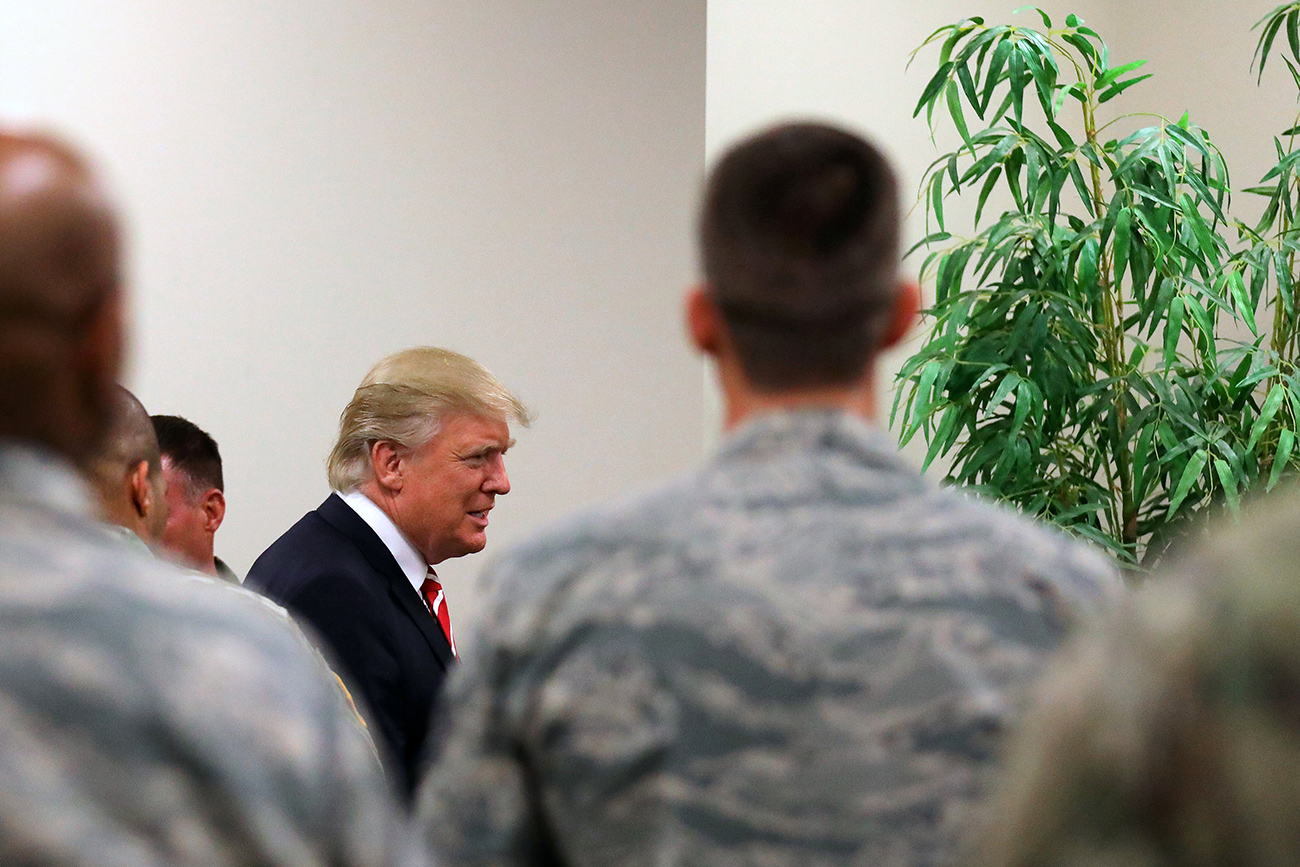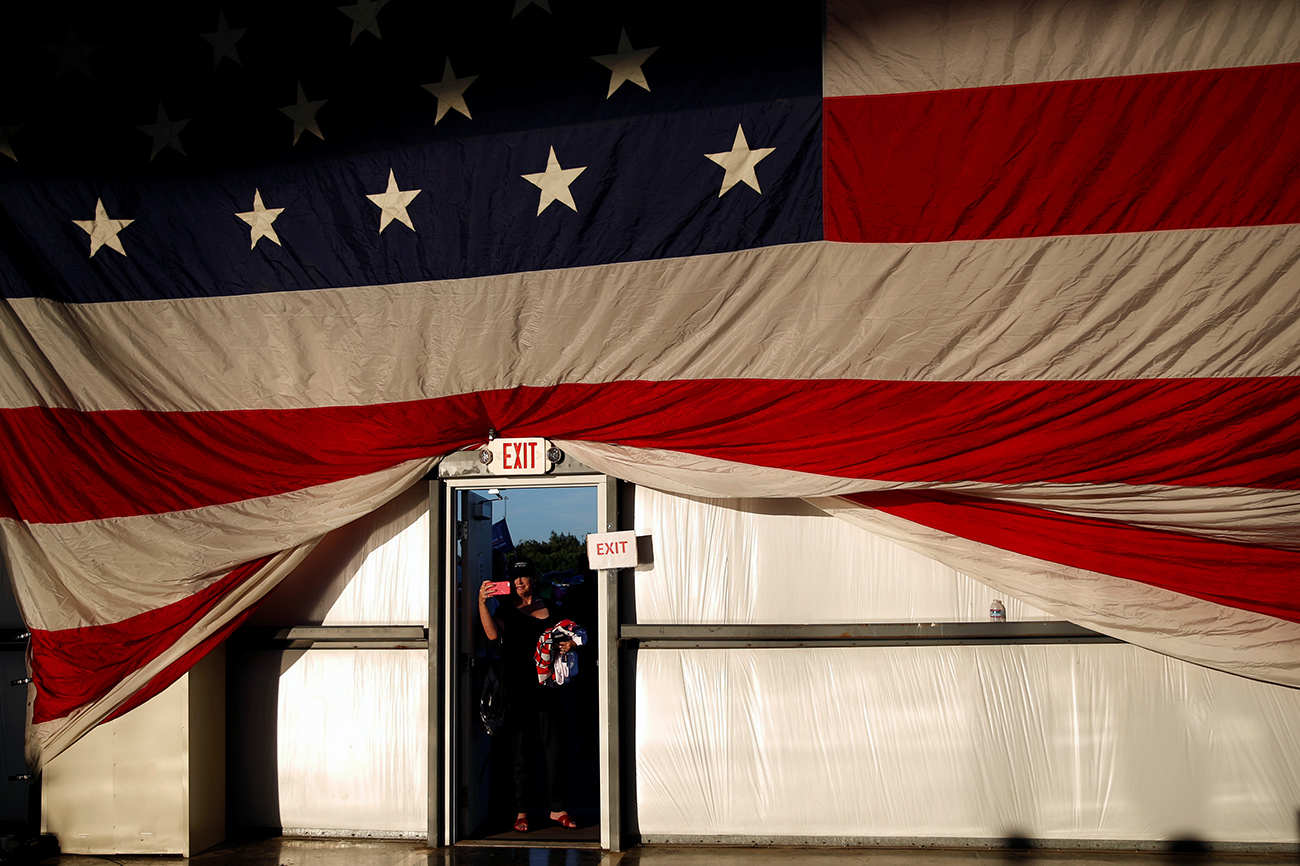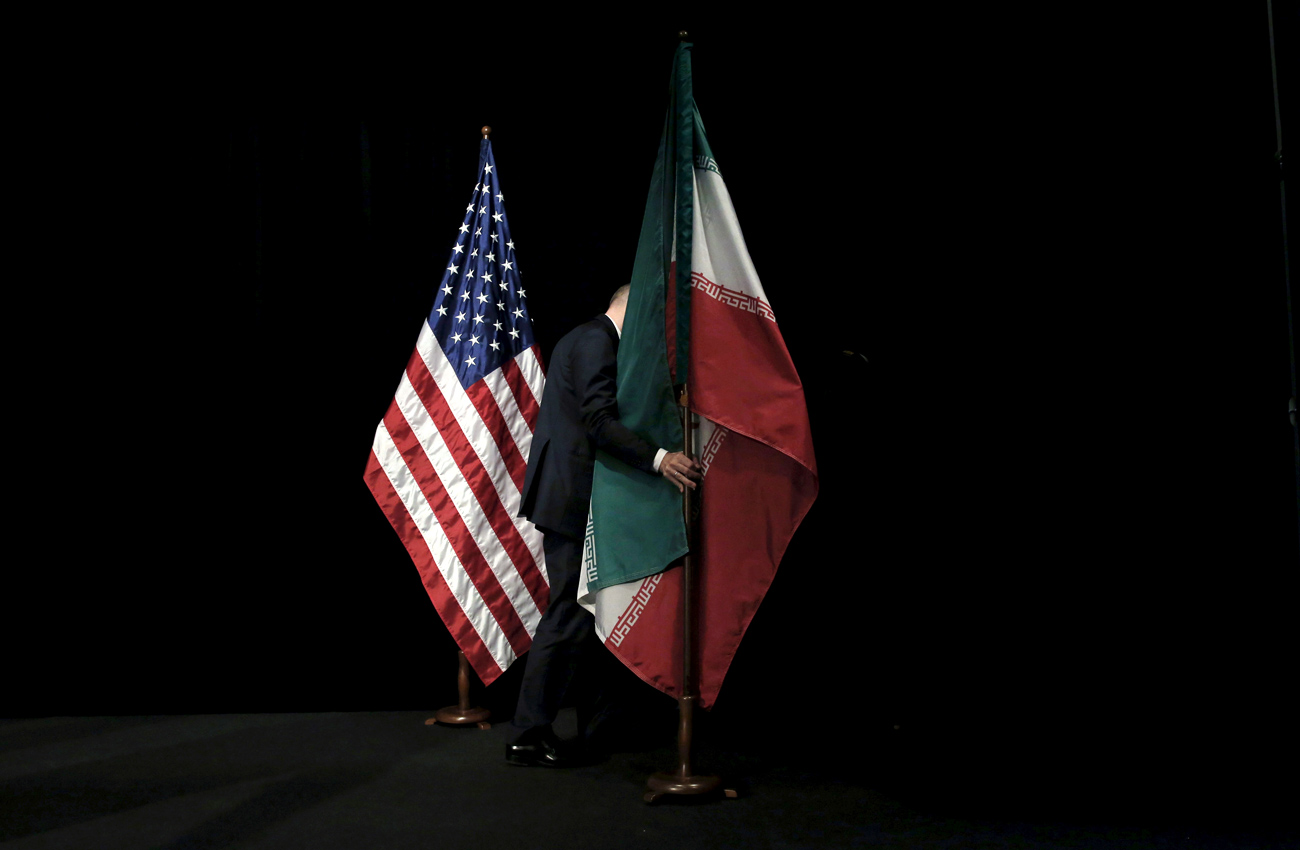Is the U.S. trying to drive a wedge between Russia and Iran?

Apart from the seemingly natural demand of ‘easing sanctions,’ Mr. Putin is believed to want from Mr. Trump “to scale back criticism of Russia’s military operations in Ukraine” and also freeze further NATO expansion to the borders of Russia.
ReutersSenior officials in Trump’s administration must have deliberately leaked information to the media on debates among foreign policy strategists on how best to persuade the Kremlin to abandon its close ties with Iran that were fortified recently by successful military cooperation on the Syrian battlefront.
“If there’s a wedge to be driven between Russia and Iran, we’re willing to explore that,” an unnamed official revealed, as quoted in the Wall Street Journal.
The leak looks like a combination of a litmus test and pre-emptive pressure to restoring dialogue with Moscow, but unvaryingly on American terms and conditions only.
If the price is right, right?
Regarding the trade-off that would see Russia abandon Iran, Washington pundits vary on the size of the bounty that the Kremlin would ask for in return.
Apart from the seemingly natural demand of ‘easing sanctions’ (see also how will Trump play his cards with sanctions against Russia?), Mr. Putin is believed to want from Mr. Trump “to scale back criticism of Russia’s military operations in Ukraine” and also freeze further NATO expansion to the borders of Russia.
Such views are widespread. Dimitri Simes, a graduate of the College of History of the Moscow State University, and now president of the Center for the National Interest in Washington, said, “The Russians don’t believe in free lunches.”
This approach breeds a pervasive déjà vu - we are ushered into the studio of The Price Is Right television game show.
Trade-off doctrine and actual pay-off
Would it be fair to treat speculations in the media, based on leaks from high places outlining possible trade-offs, as a sign that Trump’s administration is going to follow the logic of bargains and bargaining, with horse trading under the carpet?
Sergei Utkin, head of Strategic assessment section at Primakov National Research Institute of World Economy and International Relations, warns against simplifying the yet unstable balance of power inside and around the White House.
“Ever since Donald Trump entered the presidential race observers were keen to pinpoint his background as a business man which would invariably affect his style of decision-making,’’ said Utkin. “His choice of former Exxon Mobil CEO Rex Tillerson as U.S. Secretary of State supports the assumption that bargaining could become the ultimate instrument of doing foreign policy. And yet, it is hardly likely that Trump would find enough business persons to fill in all the key posts in the State Department and in similar government agencies.”
Anyway, the two most powerful figures in the administration come from the corporate world, is it not telling?
“The team around Trump is remarkably heterogeneous, and it still remains to be seen what kind of compromises they would strike at the end of the day,’’ said Utkin. “This is one of the reasons why Moscow prefers to prolong its ‘wait-and-see’ attitude.”
What are the chances that the Kremlin would be ready to accommodate Washington’s attempts to ‘drive a wedge’ in relations between Moscow and Tehran?
“It is no big secret that Moscow and Tehran do not see eye to eye on many issues, in particular regarding the fate of Bashar al-Assad in Syria; interests of the two nations often diverge,’’ said Utkin. “Nevertheless, Russia considers the nuclear deal reached in 2015 between the Islamic Republic of Iran and world powers (the P5+1 and the European Union) a solid achievement, and would not like to see it unilaterally scrapped by the United States. This stance is unlikely to be altered.
“Still there is plenty of vagueness as to where Trump’s administration will be heading to,’’ said Utkin. “The first high-level meetings between Sergei Lavrov and Rex Tillerson, followed by the meeting of the two presidents will hopefully provide some answers.”
In any case, there is a bit of doubt that bettering relations with the United States comes as the top priority for the Kremlin at a time when the multi-polar world slowly emerges from the crumbling unilateral Western dominance after the end of Cold war.
Provoking the ayatollahs
Lately, Washington upped the ante. After ballistic missiles tests by the Iranian military, Trump imposed sanctions on 25 Iran-linked individuals and entities for their alleged roles in assisting the ayatollahs to acquire such a capability. Moreover, the USS Cole was deployed to patrol the waters around Yemen.
Retired Lt. Gen. Michael Flynn, Trump’s national security adviser, publicly announced that he has put Iran “on notice,” whatever it entails in terms of other unfriendly moves.
No wonder the government in Tehran under the smart pragmatic President Hassan Rouhani is genuinely worried that Trump administration could rollback all the positive achievements of de-sanctioning Iran and set the ball rolling in the direction of confrontation instead of cooperation.
“The Iranians that we have met unanimously expressed concerns over the possibility that Moscow responds to the overtures from Washington and ends its present ‘special relationship’ with Iran,” said Irina Fedorova, senior research fellow at the Institute of Oriental Studies at the Russian Academy of Sciences, after attending an academic forum in Iran.
Truly worried?
“They posed a direct question - would Moscow agree to dump Tehran for American’s concessions that would see a softening of its stance on developments in Eastern Ukraine? Would Moscow consent to abandon Bashar al-Assad?” askes Fedorova.
What are the chances that Trump would go to great lengths into turning Iran once again into a formidable foe?
“It’s not a given - the new secretary of defense, retired marine general James Mattis, known as the Mad Dog, said he was against dumping the Iranian nuclear deal,” said Fedorova. “Similar reservations have been voiced recently by Republican congressmen. On the other hand, fanning hostilities toward Iran fits well into Israel’s foreign policy agenda. For the moment, it is unclear how far would Trump go.”
The gamble is big enough and might be detrimental to U.S. interests in the region where it keeps losing credibility.
It is worth quoting Patrick Cockburn of The Independent, a British commentator with sophisticated understanding of the Middle East: “There is the same mixture of wishful thinking, misinformation and arrogance in Washington as led to the U.S. disaster in Lebanon in 1982-83 and in Iraq after 2003. Trump’s tub-thumping in quarrels with Australia and Mexico may not have very dire effects in the long term because no blood is being spilt. But in the Middle East, a zone of wars, Trump’s angry amateurism is more likely to produce a thoroughgoing disaster.”
For the moment, Trump’s foreign policy resembles the pre-negotiation tactics of raising the stakes to scare adversaries, allies and potential partners. Nothing is clear, let alone comprehensible. For Moscow it makes sense to sit with a poker face and wait.
Read more: 5 hot topics for the Putin-Trump phone call>>>
If using any of Russia Beyond's content, partly or in full, always provide an active hyperlink to the original material.
Subscribe
to our newsletter!
Get the week's best stories straight to your inbox

